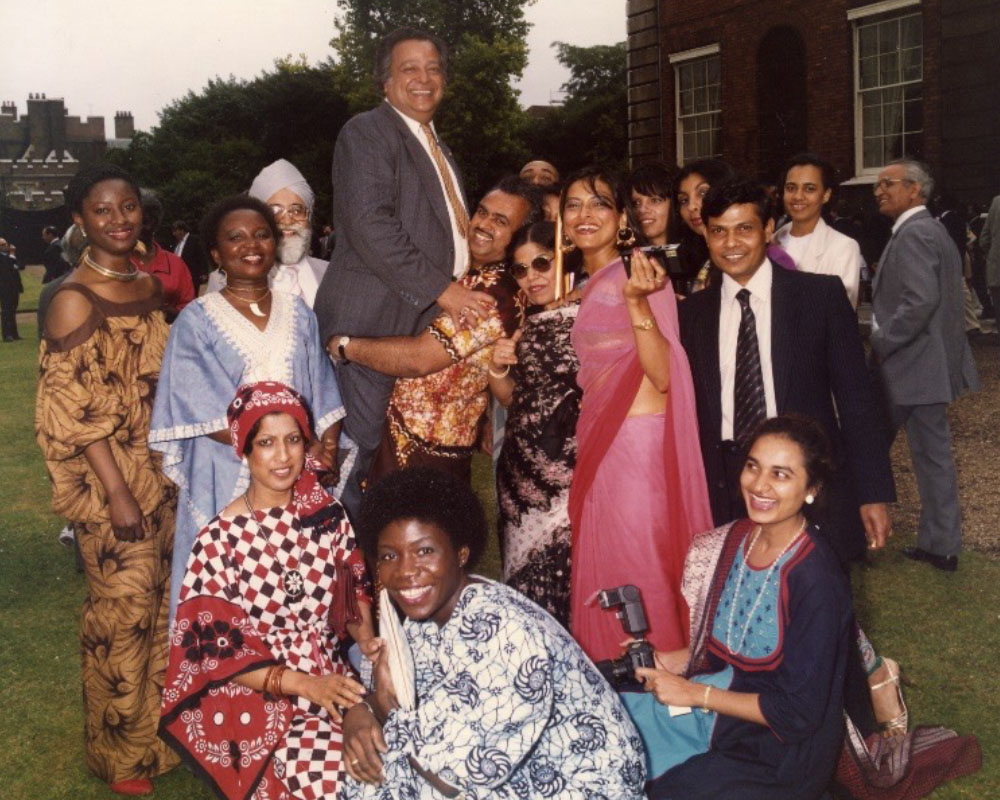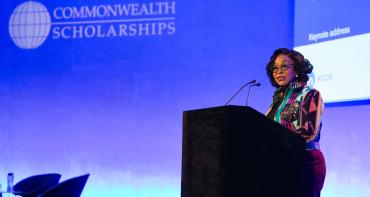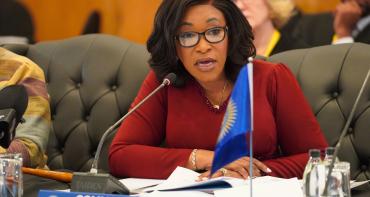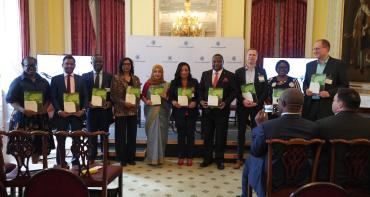1. Pioneering leadership from the Global South
In 1975, Ramphal became the first Secretary-General from a developing country. His appointment marked a transformative shift in Commonwealth leadership — bringing the voice of the Global South to the centre of Commonwealth decision-making.
Hear him talk about the role of Secretary-General in his 2020 interview with Commonwealth Round Table's Rita Payne:
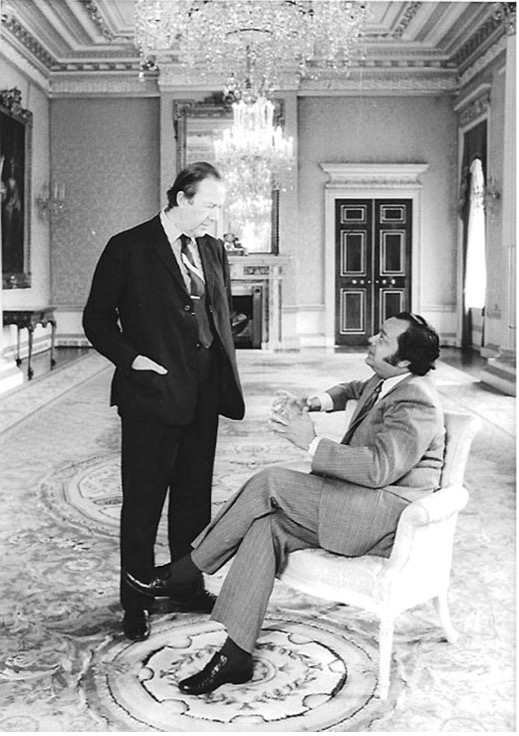
2. He fought relentlessly to end apartheid
Sir Sonny was one of the most consistent and influential global figures in the fight against apartheid. He galvanised the Commonwealth to apply sanctions and moral pressure, contributing to international momentum for South Africa’s liberation.
Ramphal also convened an independent Eminent Persons Group (EPG), to visit South Africa and meet with key stakeholders, including visits with Mandela in prison. Unsuccessful at the time, the EPG’s work was later called prophetic’ by RF ‘Pik’ Botha. “It embodied all the elements which formed the basis of the negotiations between the South African Government and the ANC four years later”.
Image right: Commonwealth Eminent Persons Group (EPG), Marlborough House, London, 1986: L-R: Commonwealth Secretary-General Shridath Ramphal, Archbishop Edward Scott, Dame Nita Barrow, Malcolm Fraser, General Olusegun Obasanjo, Lord Barber of Wentbridge, Sarsar Swaran Singh, John Malecela.
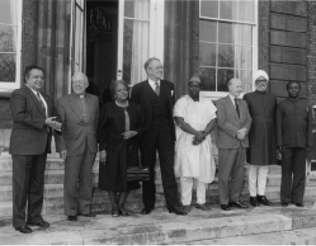
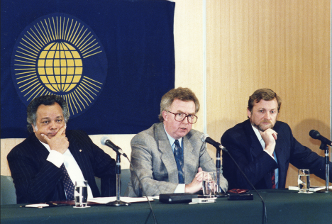
A Commonwealth Committee of Foreign Ministers on Southern Africa (CFMSA) was later established to coordinate the implementation of agreed Commonwealth Sanctions. It also gave special attention to the question of destabilization of its neighbours by South Africa.
Image left: Press Briefing after the meeting of Commonwealth Committee of Foreign Ministers on Southern Africa (CFMSA), Parliament House, Canberra, Australia 1989. L-R: Commonwealth Secretary-General Shridath Ramphal; Joe Clarke, Minister of Foreign Affairs, Canada; Australian Foreign Minister Gareth Evans.
Perceptively recognising that public perception was critical in winning support for the cause, a joint workshop on countering apartheid propaganda was held in conjunction with the United Nations
Listen to Ramphal speaking at the Countering Apartheid Propaganda workshop
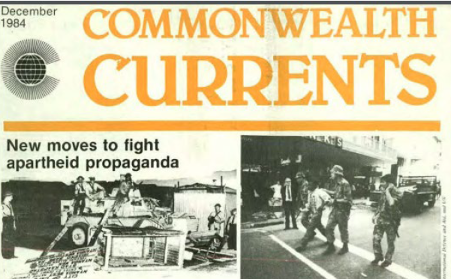
3. He supported majority rule and development across southern Africa
Ramphal played a vital role in the transition of Southern Rhodesia to Zimbabwe. The 1979 CHOGM in Lusaka paved the way for the deployment of the first Commonwealth election observer mission, and helped navigate one of Africa’s most complex decolonisation processes — supporting peaceful independence and majority rule.
The support for southern Africa expanded beyond the political sphere. The technical machinery of the Secretariat was similarly deployed to deliver capacity building assistance to front line states as a means to reducing their economic dependency on South Africa. Although not a Commonwealth member at the time this included Mozambique.
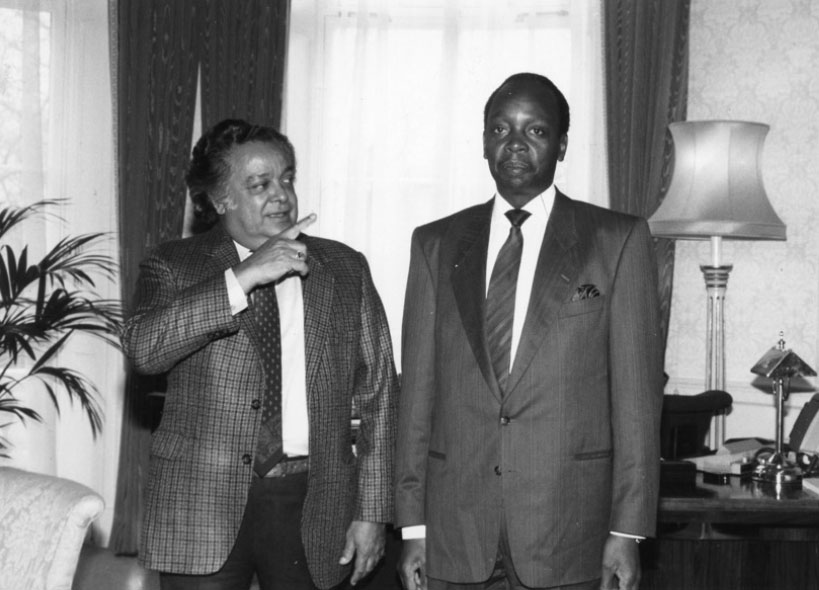
4. He stood up for small and vulnerable states
Under his leadership, the Commonwealth began championing the unique challenges faced by small island and vulnerable states. He ensured they had a voice in multilateral debates — on climate change, debt, and economic justice.
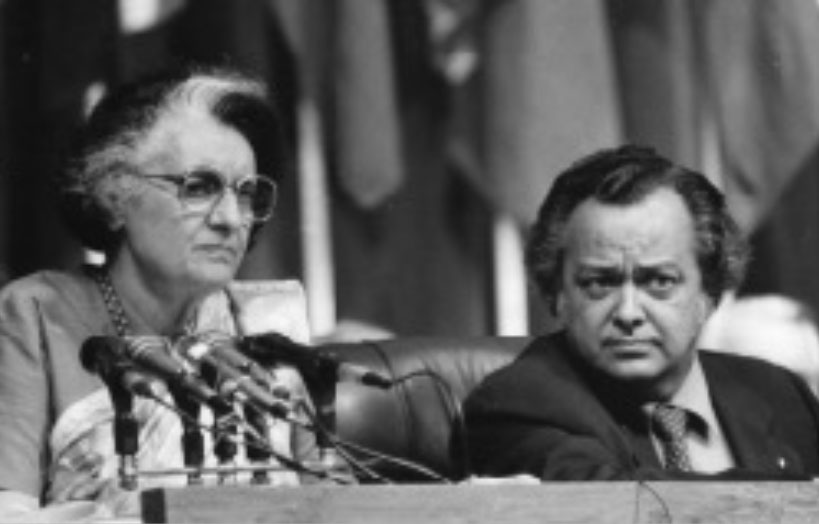
Following the events in Grenada the previous month, the problems of small states, including their security, prompted urgent action. Ramphal convened a High Level Commonwealth Consultative Group who produced the report Vulnerability: small states in the global society: and this looked at aspects such as military, political, economic, technical, social and cultural vulnerabilities.
5. He championed economic fairness
Ramphal argued forcefully for a more equitable global economy. He helped position the Commonwealth as a moral voice calling for trade reform, fairer terms of aid, and global policies that support the development aspirations of poorer nations.
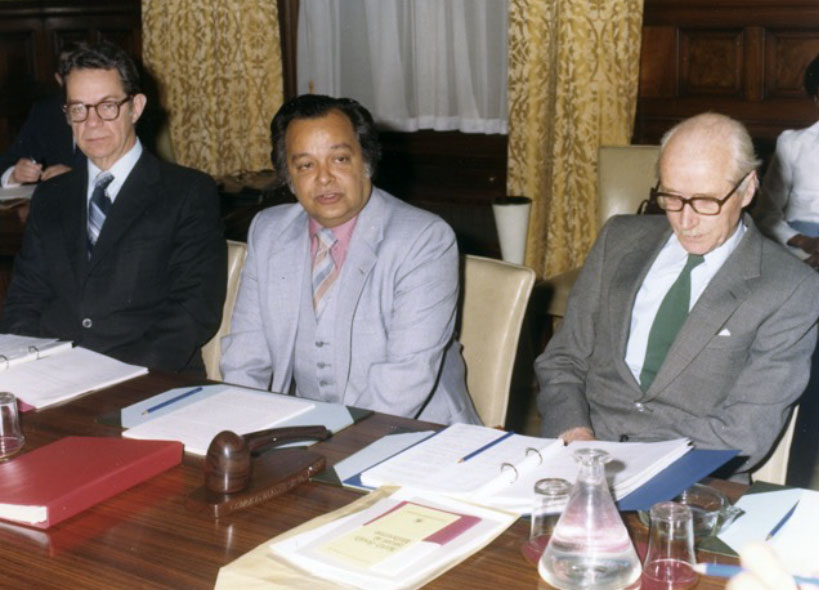
Read the final report, Protectionism: Threat to International Order: The Impact on Developing Countries, Report by a Group of Experts
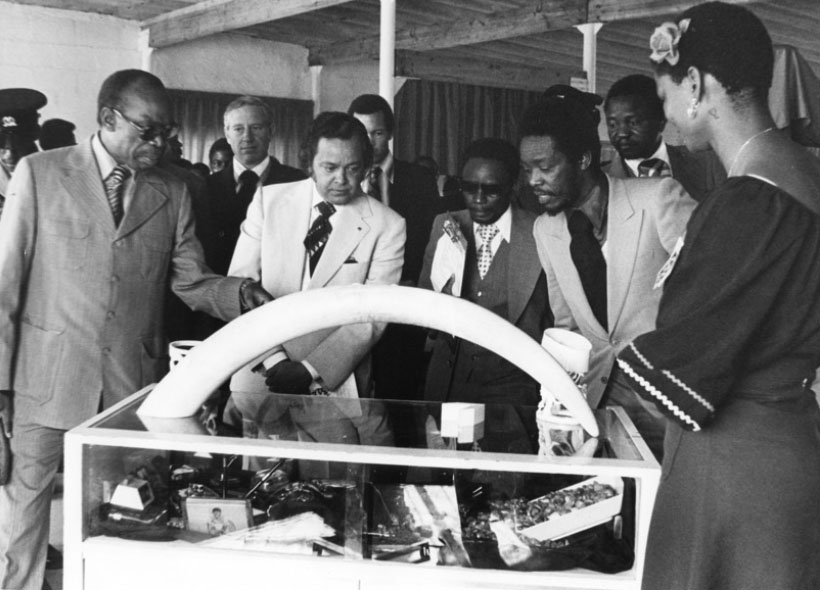
6. He foresaw the climate crisis
Though the environment was not yet high on the international agenda, Sir Sonny was ahead of his time. The Commonwealth was one of the first organisations to publish on rising sea levels — advocating for sustainable development decades early.
Following a mandate from leaders in 1987 CHOGM, Ramphal convened a group of experts to examine the implications of rises in the sea-level. Read an early publication on this topic, Climate Change: Meeting the Challenge: Report by a Commonwealth Group of Experts.
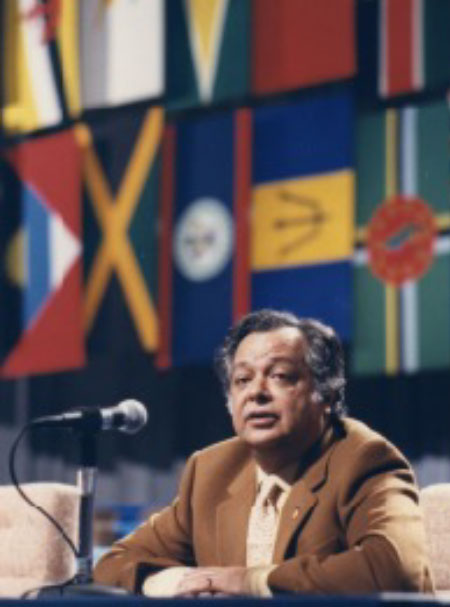
7. He was a skilled peace mediator
With his calm authority and diplomatic finesse, Ramphal quietly helped mediate in several global tensions. His ability to earn trust on all sides gave the Commonwealth a respected role in peacebuilding during a time of Cold War rivalries and postcolonial unrest.
Informal in style and without advisers, Ramphal also made constructive use of the CHOGM leaders retreats. While differences between the UK leader and the rest of the Commonwealth on the issue of South Africa persisted, real progress on the environment was developed at the retreat in Malaysia, 1989.
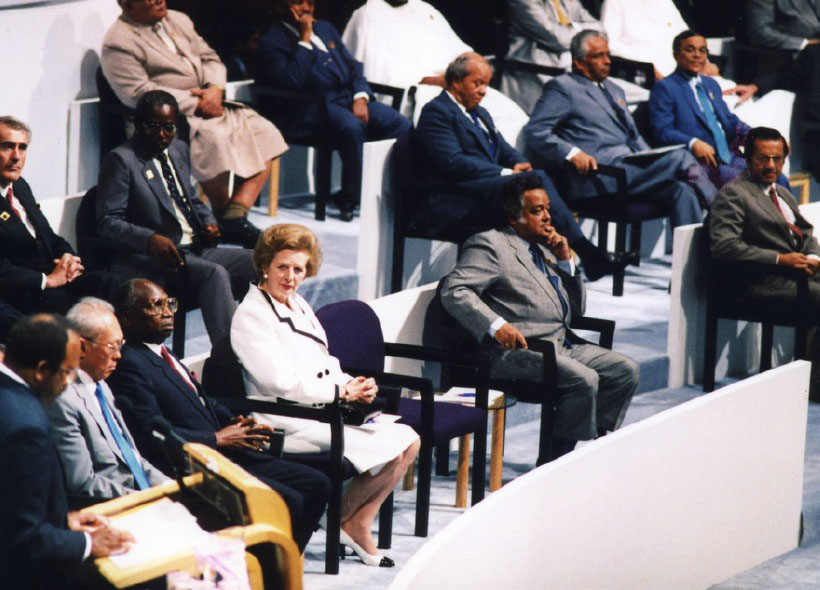
8. He used his pen to influence hearts and minds
Beyond diplomacy, Sir Sonny was a powerful writer and thinker. His books and speeches – including ‘One World To Share’ – helped shape discourse on development, global justice and the responsibility of rich nations to the global community.
Read a selection of his words below. Or you can read his speeches in full here Speeches – Sir Shridath Ramphal
“We cannot negotiate for the world, but we can help the world to negotiate”
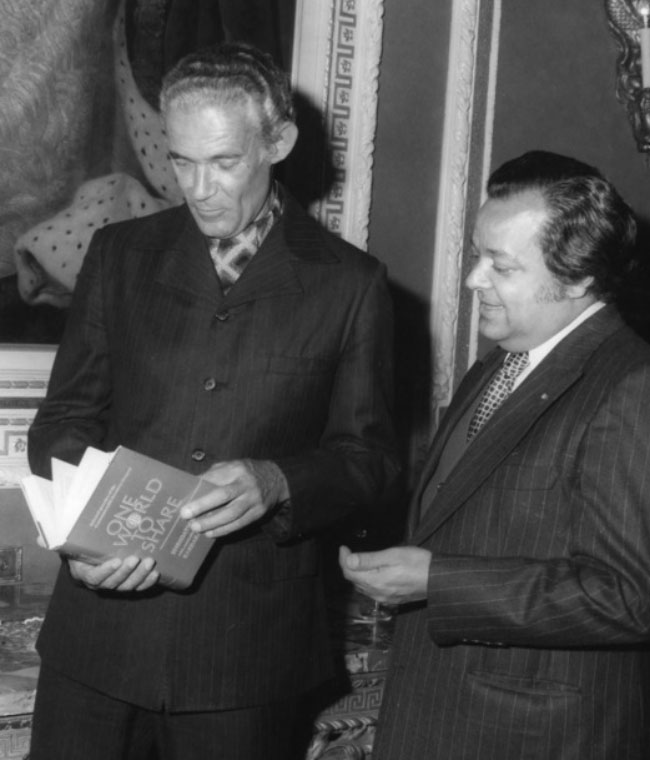
“The Commonwealth's present is too rich in dynamic to allow us to superimpose the past upon it. Its contemporary role is too vital for us to permit it to appear on the world stage wearing the mask of the preceding scene - for we too, even within the Commonwealth could tend to lose the meaning of the play.”
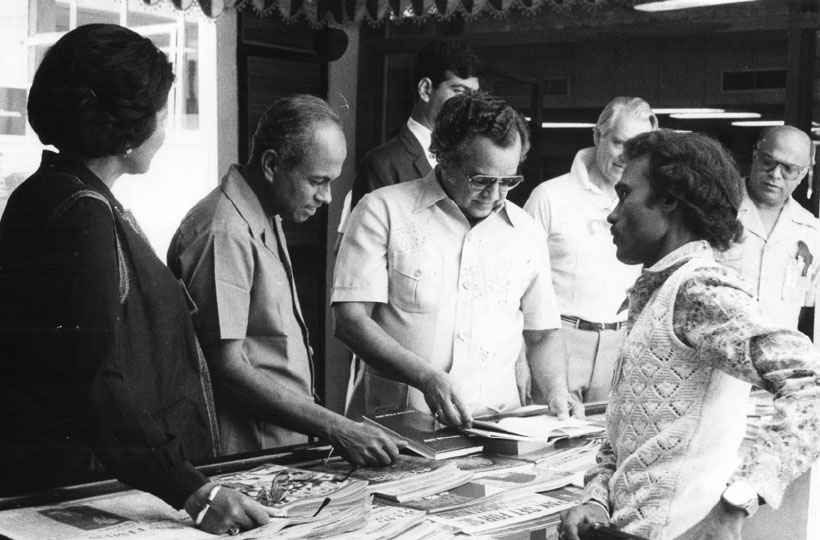
“What was needed if peoples of the world were to be made less unequal in their economic destinies was not so much the outvoting of a rich minority or their passive acquiescence in the promise of change, but the conversion of that minority to the need for change and the urgency of its imperative. Such conversation cannot be expected from the processes of United Nations action only; other fora, other forms of diplomacy, other machinery for dialogue that possess a potential for promoting such conversation must render service to the cause of change.”
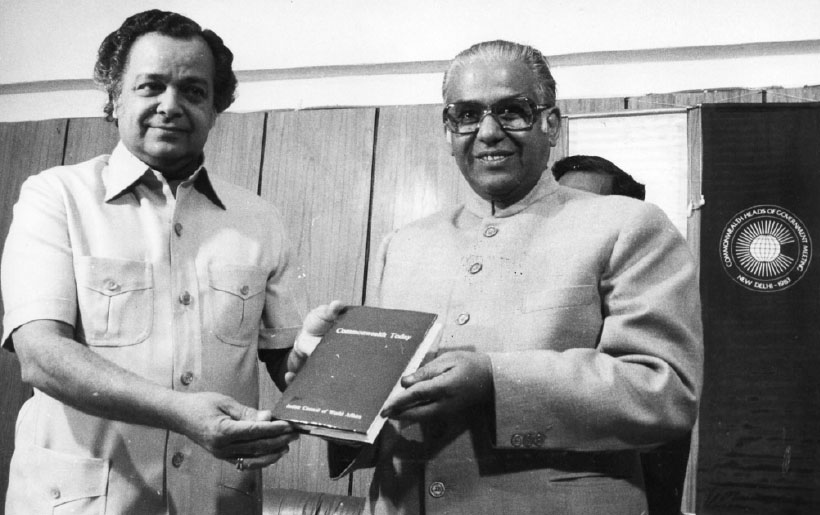
9. He earned honours across continents
Sir Sonny was celebrated by nations around the world, receiving high-level honours from the Caribbean, Pacific, Africa, Asia, and Europe— reflecting the global esteem in which he was held for his principled and far-reaching work.
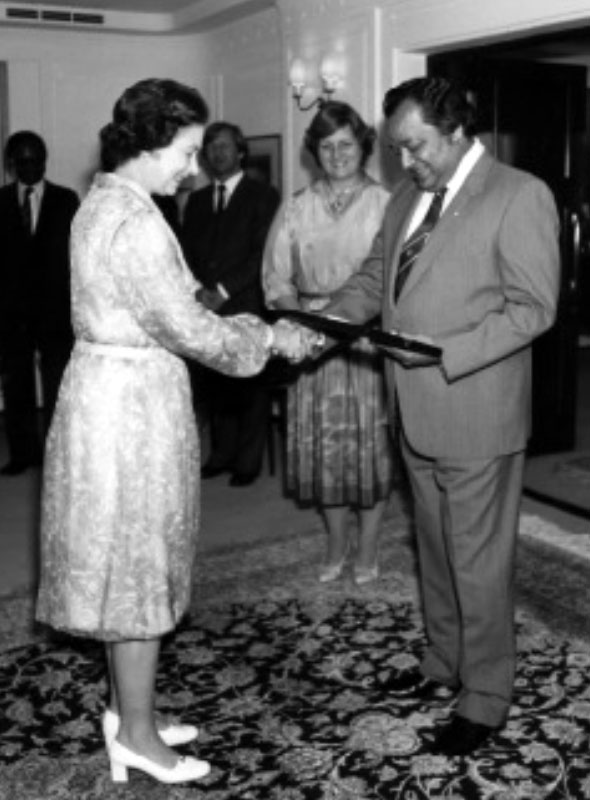
10. He helped define the modern Commonwealth
His leadership helped shift the Commonwealth from a post-imperial association to a moral and political force for good. Under his watch, it became a more cohesive voice for democracy, equality, and international solidarity — values that still define it today.
